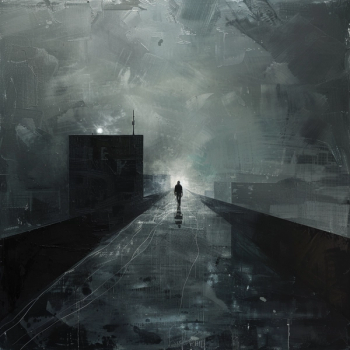
- Vol 40, Issue 8
Creativity Outlets: The Clinician’s Battery for Recharging
The ambiguity of psychiatry naturally lends itself to a story, and creativity is all about telling a story.
SPECIAL REPORT: CREATIVITY & PSYCHIATRY
Psychiatry is a unique field for many reasons, but largely because it deals with gray space. Compared with other fields, our diagnoses rely more on subjective measures. We cannot diagnose
In psychiatry, the diagnosis is always tied to the human element. It may be simple to be cut and dry (clinical) when addressing someone’s high blood pressure, but it is different when a patient tells you their darkest secrets and greatest shames that are tied to their disorder. Mental illness colors an individual’s entire life. Again, numbers don’t come close to encapsulating an individual’s life, but stories can and do.
As a provider, seeing patient after patient with concerns can drain one’s empathy, energy, and ability to think clearly. I find
These poems were written during my medical training. Writing was crucial for me as I was going through medical school and residency. It has always been my greatest tool for processing difficult thoughts and emotions, and that habit served me well in my training.
I wrote “Physical Exam” early on in medical school. We were practicing techniques on volunteers (called standardized patients) and something about the whole process felt clinical, cold, and almost demeaning. I felt like I was asking too much when I asked them to change into a gown; it was a process that felt like I was stripping away part of who they were. The invasive nature of the entire process was something no one really talked about, so I tried to capture that in the poem.
“Boy on Beach” was inspired by a photo of a child named Alan Kurdi. He was a Syrian refugee who drowned in the Mediterranean Sea; his body washed onto shore. In the photo, you cannot see his face, just his lifeless body and the clothes he was wearing. I found the photo disturbing, and I had trouble processing it. The line “my conscience will not let me be content,” and the repeated line with conscience changed into conscious was an attempt to describe my inability to stop thinking about it—the image and the injustice of it all. I felt completely powerless, and writing helped a bit.
“Patient F” was inspired by a patient in a child unit where I trained. She was a little girl who had such spark but also a dark and biting wit. The room lit up when she was in it, and it felt like the only person who could not see that was her. There are things we cannot say to our patients, especially inpatients and children, as I am a firm believer in setting boundaries and not letting countertransference interfere with appropriate care and treatment. As with the other pieces, the poem helped me process what I felt.
Boy on Beach
My conscience will not let me be content.
Limp, he washed up on the sand.
Red shirt, size XS.
Blue shorts, size XXS.
Muddy shoes, children’s size six.
My conscience will not let me be content.
A mother that has been.
A mother that may be, only
the restless ventricles of my heart and the
restless ventricles of my brain will allow
one or none,
orphaned or aborted but—
My conscience will not let me be content.
I skim the water with my toe
pregnant oceans,
giving new life, a womb
taking it back, a tomb.
My conscious will not let me be content.
Physical Exam
Hi, I’m the doctor.
Take off your shirt, please.
Your pants, too.
Take off your shoes, your socks
Your boxers and bra.
Take off your makeup, then
Take off your hair.
Take off your eyes, your
Nose, your fingers and toes.
Take off your face and your skin.
Take off your muscles and tendons and nerves
Take off your vessels, your
Ribs, your bones.
Take off your intestines and your lungs.
Take off your heart.
Take off your brain.
Take off your self.
Name, please?
Patient F
You are so bright, star child.
The scars on your wrists have
healed so well because you are
so young.
You have everything ahead,
you have the Milky Way in your grasp.
Tie it to your heart and tell the world:
I am infinite, I am the only one.
Protect your heart with hydrogen ions and
atom bombs.
You are seen, and you make the world rethink
what a child can be:
infectious brightness cutting through infectious hate.
Do you know how to keep the darkness away?
You think you must embrace it, and with a
heart so bright, maybe you should, but
never let it sink your soul.
Never let the dark matter tear your gravity asunder.
You must be patient, star child.
These years are fleeting but formative,
brief beginnings but they etch
scars in your heart like
chemtrails in the sky.
You must be resilient, star child.
There is only one way to cross an asteroid field.
You must travel like the light you are.
You must move with fleetness of foot and
fearlessness of failing.
You must take your ship and
sail it as far as it may go.
Ground control to the skies, and
we all must watch you fly.
Fly so far that this hospital room becomes
a speck of dust in an
infinite universe.
Dr Maier is a psychiatrist with Network 180 in Grand Rapids, Michigan. She strives to integrate the humanities into psychiatric training and practice.
Articles in this issue
over 2 years ago
Science and Art in Cognitive Behavioral Therapyover 2 years ago
The Poetic Bodyover 2 years ago
Poetic Reflections Yield Lessons Learnedover 2 years ago
A Creative Journeyover 2 years ago
Poetry and Meover 2 years ago
National Academy of Medicine Works on AI Code of Conductover 2 years ago
What I LoveNewsletter
Receive trusted psychiatric news, expert analysis, and clinical insights — subscribe today to support your practice and your patients.






